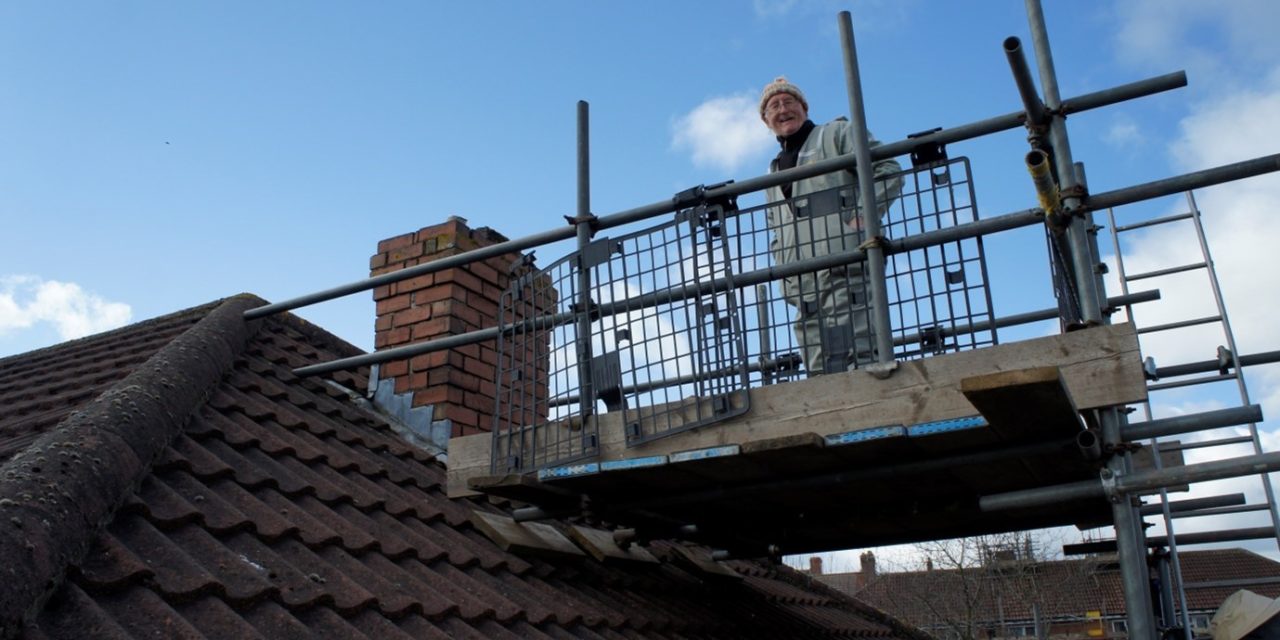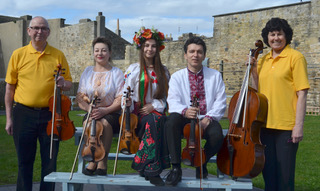Getting stung occasionally by a bee is usually the extent of the hazards beekeepers expect to face. Last week builders working in Shildon encountered a large colony of bees nesting in the top of a chimney. The builders were tasked with removing the chimney but clearly didn’t want to get too close and didn’t want to kill the bees either. They called the local pest control officer who in turn called Aycliffe Beekeepers Association. Working on scaffolding, beekeepers Roger Chappel, Stuart Fawcett and Steve Jenkins found that the colony was indeed extremely large, well established and had probably been there for some time. After some effort the concrete cap of the chimney and four or five courses of bricks were removed exposing the top part of the colony. Large lengths of comb with bees were carefully removed and placed in three cardboard boxes. The following day the bees and their comb were transferred to a wooden, purpose built hive. We hope the colony will become part of our apiary and have a healthy future.
Aycliffe Beekeepers Association have found the pandemic a challenge but have adopted technology such as Zoom to get us through. Our meetings have all been on-line and we have just completed our first training course via the internet. As social distancing rules relax we will be able to start practical training in our apiary at St Oswald’s.
At this time of year beekeepers are getting ready for the new season. The bees, who have been relatively dormant over the winter, have started foraging for nectar and pollen. Soon we will be inspecting our hives and helping our bees build up and ready themselves for the new season. During the cold winter months we feed the bees with fondant (where necessary) and the association has been fortunate to receive a helpful supply of sugar from Tesco and Aldi.
Around May/June honey bees have a tendency to swarm. This is part of their natural reproduction cycle – about half of the bees in the hive leave with the Queen bee and look for a new place to colonise. This is probably how the bees in Shildon ended up in the chimney. As an Association one of the services we offer to the public is to collect swarms. A swarm of bees may contain tens of thousands of bees and can be quite an alarming sight but we don’t want the bees killed or harmed so we are happy to save them and try and turn them into a productive colony. If you see a swarm this summer which may have settled nearby, typically on the branch of a small tree and the size of a small rugby ball, please contact us.
Contact the Secretary Steve Jenkins
email:secretary.aycliffebka@gmail.com
Mobile: 07825 980692










